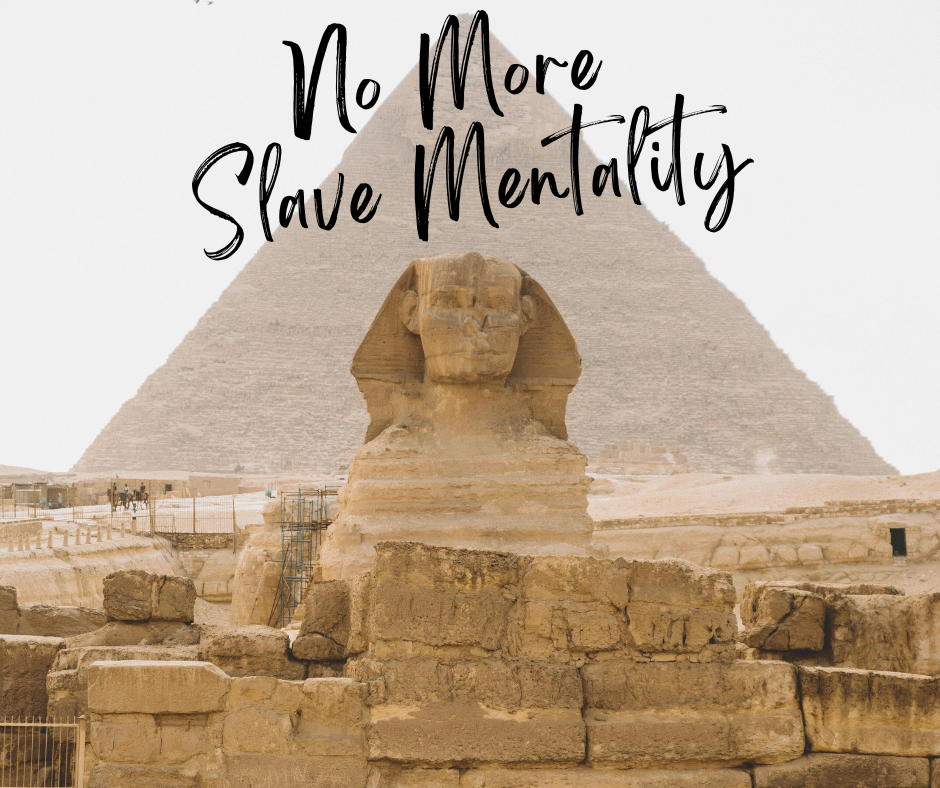Christians Need Authentic Fellowship
Listen to the Devotional Below

The Power of Christian Fellowship: Building a Welcoming Church Community
Life gets crazy sometimes. It can be difficult to keep up with everything going on and it's easy to overlook the importance of genuine connection within our church communities. We often rush through our Sunday routines, trying to get to church, focusing on the worship and the sermon, but missing out on a crucial aspect of Christian life - fellowship. The book of Colossians offers us a powerful reminder of just how vital this element is to our spiritual growth and the health of our congregations.
As we examine Colossians 4:7-18, we might be tempted to skim over what appears to be a simple list of greetings. However, these verses contain a lesson about the nature of Christian community. The apostle Paul dedicates nearly a quarter of this letter to personal greetings and updates, demonstrating the high value he placed on relationships and fellowship within the church.
Paul writes, "Tychicus will tell you all the news about me. He is a dear brother, a faithful minister and fellow servant in the Lord. I am sending him to you for the express purpose that you may know about our circumstances and that he may encourage your hearts." This passage reveals that Paul saw great importance in keeping the church informed about his situation and in fostering encouragement among believers.
This emphasis on connection and fellowship isn't just a nice addition to our faith - it's a fundamental aspect of what it means to be the church. The early Christians, as described in the book of Acts, "continued steadfastly in the apostles' doctrine and fellowship, in the breaking of bread, and in prayers" (Acts 2:42). Fellowship was one of the four pillars upon which they built their community.
But what does this mean for us today? It means we need to intentionally create space for meaningful interactions within our church gatherings. It's not enough to simply show up for the service and leave immediately afterward. We are called to invest in relationships, to take the time to truly see and hear one another.
Jesus himself emphasized the importance of going beyond our comfort zones in our interactions. In Matthew 5:46-47, He challenges us: "If you love those who love you, what reward will you get? Are not even the tax collectors doing that? And if you greet only your own people, what are you doing more than others? Do not even pagans do that?" As followers of Christ, we are called to a higher standard of love and fellowship that extends beyond our immediate circle.
This call to deeper fellowship isn't always easy. It requires vulnerability, time, and sometimes stepping out of our comfort zones. But the rewards are immeasurable. When we prioritize relationships within our church community, we create an environment where people feel truly seen, heard, and valued. This is the kind of church that can weather storms together, support one another through trials, and celebrate joys as one body.
Moreover, a church that prioritizes fellowship becomes a powerful witness to the world. In a society plagued by loneliness and division, a community characterized by genuine love and connection stands out. It becomes a beacon of hope, showing the transformative power of Christ's love in action.
So how can we cultivate this culture of fellowship in our churches? Here are a few practical steps:
1. Plan to arrive early and stay late: Create margin in your schedule to allow for conversations before and after the service.
2. Step out of your comfort zone: Make an effort to greet someone new each week, or reconnect with someone you haven't spoken to in a while.
3. Listen actively: When engaging in conversation, focus on truly hearing the other person rather than just waiting for your turn to speak.
4. Be vulnerable: Share your own struggles and joys, creating space for others to do the same.
5. Pray for one another: Ask how you can pray for others, and follow up on those prayers in future conversations.
6. Serve together: Participate in church activities and service projects, which provide natural opportunities for deeper connections.
It's important to remember that building this culture of fellowship is not just the responsibility of church leadership - it's a calling for every member of the body of Christ. Each of us has a role to play in creating a welcoming, encouraging environment where people can experience the love of God through community.
As we embrace this vision of a fellowship-rich church, we may find that it challenges our preconceptions about what church should be. It might mean staying a little longer on Sunday mornings or pushing ourselves to engage with people we don't know well. But the potential impact is immense. Lives can be changed, burdens can be lifted, and the love of Christ can be tangibly experienced through these connections.
Imagine a church where no one feels like an outsider for more than a week or two. A place where people of diverse backgrounds come together, united by their love for Christ and for one another. This is the kind of church that can truly make a difference in its community and in the world.
As we reflect on this message, let's challenge ourselves to take concrete steps towards fostering deeper fellowship in our church communities. Whether it's reaching out to someone new on Sundays, staying a few extra minutes to have a meaningful conversation, or committing to pray regularly for others in our congregation, each small act of fellowship can contribute to a more vibrant, loving, and Christ-centered community.
Remember, the church is not just a place we go, but a family we belong to. By prioritizing fellowship, we not only enrich our own spiritual lives but also create a space where others can encounter the transformative love of Christ. Let's commit to building churches that don't just preach about love, but actively demonstrate it through genuine, caring relationships. In doing so, we fulfill Christ's command to love one another and become a powerful testimony to His transforming grace in our world.
-----
Here's a 5-day Bible reading plan and devotional guide for your week based on the sermon:
Day 1: The Power of Christian Fellowship
Reading: Colossians 4:7-18
Devotional: Paul's letter to the Colossians reminds us of the importance of Christian fellowship. In today's reading, we see how Paul takes time to greet individuals and express his care for the church. This teaches us that our faith isn't just about personal spirituality, but about building meaningful connections within the body of Christ. Reflect on your own church community. Are you actively seeking to build relationships and encourage others? Consider how you can step out of your comfort zone this week to greet someone new or deepen an existing relationship. Remember, sometimes all someone needs is for you to listen and show that you care.
Day 2: Unity in Diversity
Reading: Ephesians 2:11-22
Devotional: The church is called to be a place where people of all backgrounds come together in unity. In Ephesians, Paul describes how Christ has broken down the dividing wall between Jews and Gentiles, creating one new humanity. This reflects the diverse nature of the church described in the sermon. Today, pray for unity in your church across racial, ethnic, and social boundaries. How can you personally contribute to building bridges and fostering understanding? Remember that our unity in Christ transcends all earthly divisions, and we are called to be an example of this reconciliation to the world.
Day 3: Serving Others as Christ Served
Reading: Mark 10:35-45
Devotional: Jesus teaches that true greatness comes through serving others. As we mature in our faith, we're called to shift from constantly seeking to be fed to learning how to feed others spiritually. Reflect on areas where you've grown in your faith. How can you use that growth to serve and encourage others in your church community? Consider volunteering in a ministry, mentoring a newer believer, or simply being more intentional about encouraging others. Remember Jesus' words: "The Son of Man did not come to be served, but to serve."
Day 4: Creating a Welcoming Atmosphere
Reading: Romans 15:5-7
Devotional: Paul encourages the Romans to welcome one another as Christ has welcomed them. This echoes the sermon's emphasis on creating a welcoming church atmosphere. Think about your church experience. Do you arrive early to help set the tone for worship? Are you on the lookout for newcomers or those standing alone? Challenge yourself to be intentional about making others feel welcome, remembering that your actions can significantly impact someone's experience of church and, ultimately, their perception of God's love.
Day 5: The Church as a Family
Reading: 1 Thessalonians 2:7-12
Devotional: Paul describes his relationship with the Thessalonian church in familial terms, highlighting the deep bonds that should exist within the church. This reflects the sermon's call for deeper, more meaningful connections among believers. Consider your own church relationships. Do they reflect the depth and care described by Paul? Pray for God to deepen your love for your church family. Think about practical ways you can show care this week - perhaps through an encouraging text, a prayer, or an act of service. Remember, as we grow closer to each other, we also grow closer to God.

Making Room for Jesus
We all know the Christmas story, don't we? Mary, heavily pregnant, riding a donkey through the night. Joseph frantically knocking on door after door in Bethlehem, hearing "No vacancy!" at every inn. Finally, in desperation, they settle for a stable where Jesus is born among the animals. That same night, shepherds rush in after seeing angels, and wise men arrive with their gifts of gold, frankincense, and myrrh. It's a beautiful, touching scene we've carried in our hearts since childhood.But what if much of what we "know" isn't quite what the Bible actually says?
Read More
No More Slave Mentality
Life has a way of getting harder right when we think we're finally stepping out in faith. We convince ourselves that obedience to God should make things easier, smoother, more comfortable. But what happens when the opposite occurs? What happens when we take that leap of faith and suddenly the ground beneath us feels even more unstable?
Read More
Gratitude Is A Virtue Not A Feeling
When we think about gratitude, most of us wait for a warm fuzzy feeling to hit us. We expect goosebumps, a stirring in our hearts, or at least a momentary rush of appreciation. But what happens when that feeling doesn't come? What happens when life feels more like a pile of torn-up concrete and rebar than a smooth, well-paved road?
Read MoreStay Connected with Revive
Sign up for our newsletter to stay informed about upcoming events, sermons, and community updates. Don’t miss out on what’s happening at Revive Church—delivered right to your inbox.


